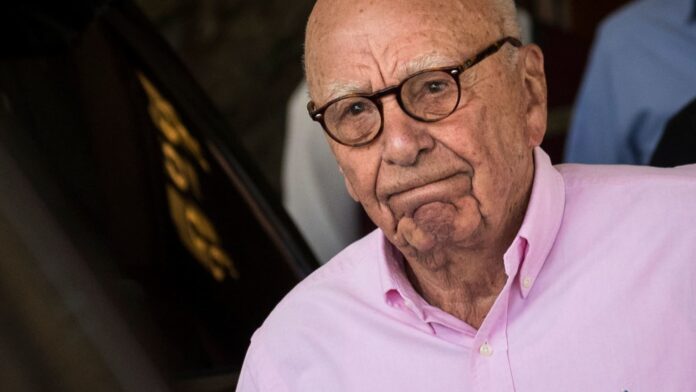Rupert Murdoch, chairman of News Corp and co-chairman of 21st Century Fox, arrives at the Sun Valley Resort of the annual Allen & Company Sun Valley Conference, July 10, 2018 in Sun Valley, Idaho.
Drew Angerer | Getty Images
Fox Corp. Chairman Rupert Murdoch is scheduled to appear for a deposition next week as part of Dominion Voting’s defamation lawsuit against the company and its cable TV networks.
Murdoch will appear via video call on Dec. 13 and 14, according to a court filing. His deposition will follow that of his son, Fox CEO Lachlan Murdoch, on Monday this week.
In its $1.6 billion lawsuit against Fox, Dominion has argued that Fox News and Fox Business made false claims that its voting machines were rigged in the 2020 presidential election between Donald Trump and Joe Biden.
Representatives for Fox and Dominion did not comment beyond the court filing. Fox has vigorously denied the claims.
The Murdochs are the highest-ranking executives to be questioned. Earlier this year Fox’s TV personalities, including Maria Bartiromo, Sean Hannity, Tucker Carlson and Jeanine Pirro, appeared for depositions.
The depositions and documents that Dominion has been collecting through the discovery process remain private. Fox has requested that the court keep all collected materials private, claiming Dominion mischaracterized what they show as actual malice.
Dominion must prove to a jury that Fox and its TV hosts acted with actual malice − meaning they knew they were reporting false information but continued to do so anyway, or purposely disregarded information that showed their reporting as inaccurate.
Fox’s top brass are being deposed after a Delaware judge overseeing the case reportedly ruled in June that Dominion’s lawsuit could be expanded beyond the cable TV networks to include their parent company. Dominion has argued Fox and its top executives played a role in Fox’s TV personalities spreading misinformation about voter fraud.
The case is being closely watched by First Amendment experts and advocates. Libel lawsuits are often centered around one falsehood. In this suit, Dominion is citing a lengthy list of examples of Fox hosts making false claims even after they were shown to be untrue.
Media companies are also usually broadly protected by the First Amendment, but the court has denied Fox’s requests to dismiss the case. And with the Dominion case moving closer to the trial’s expected start date in April, neither side has shown signs of entering settlement talks.


